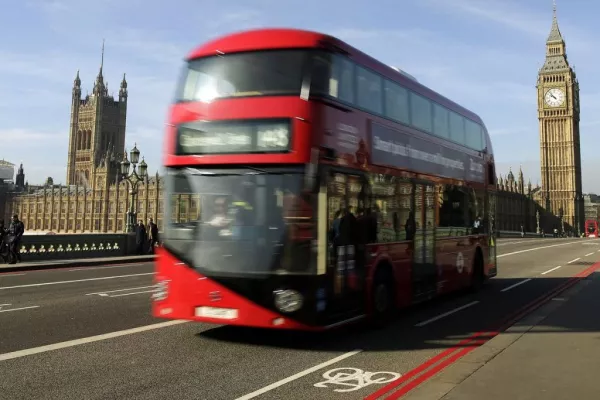London’s iconic red double-decker buses will soon run on a biofuel partially made from old coffee grounds.
The fuel will be supplied by a demonstration project set up by Bio-bean Ltd., a London-based company that joined with Royal Dutch Shell Plc on the initiative. It will produce 6,000 liters (1,583 gallons) a year of the fuel.
“It’s got a high oil content, 20 percent oil by weight in the waste coffee grounds, so it’s a really great thing to make biodiesel out of,” said Arthur Kay, founder of Bio-bean, in a phone interview.
As public pressure mounts against using food for fuel, companies are increasingly focusing on biofuels made from waste such as used cooking oil and inedible plants. Some crops such as corn and sugarcane are made into ethanol to be burned in engines, with sizable markets in some parts of the U.S. and South America.
Bio-bean has partnered with thousands of coffee shops across the U.K. such as Costa Coffee Ltd. and Caffe Nero to collect used grounds. The U.K. produces 500,000 tons annually, according to Kay. Caffe Nero’s parent company is Italian Coffee Holdings Ltd., based in London.
It will then be converted into a biofuel at the company’s factory in Cambridgeshire and blended with ordinary diesel with the finished product at 20 percent. It will then be shipped to a central tank where London buses refuel.
The company also makes a solid biomass pellet and briquette to be used in home heating and in stoves, producing 50,000 tons per year.
“It’s also a good feedstock for our other products for instance because its packed full of energy, they have a higher calorific content than wood,” Kay said.
Bio-bean was founded in 2013 and has received funding from the U.K. government, Shell and private investors. It is planning to expand throughout the U.K. and eventually to continental Europe and the U.S.
“We’re basically looking for places where they drink a huge amount of coffee,” Kay said. “Our primary expansion plans are based around where there are instant coffee factories.”
News by Bloomberg, edited by Hospitality Ireland









